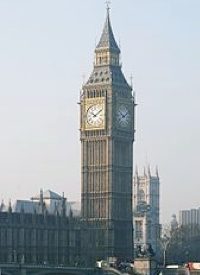
A rare abortion debate has been incited among lawmakers in Britain, who are now reconsidering the nation’s approach to abortion. The debate is focused on whether clinics that are paid to perform abortions should also be permitted to give advice to women who are unsure of how to handle unwanted pregnancies. Unfortunately, the proposal to provide alternative sources for pre-abortion counseling was rejected by Members of Parliament today.
Abortion law in Britain permits abortions up to 24 weeks’ gestation, and also makes exceptions for abortions after 24 weeks if doctors believe the mother’s life is in danger or that the child will be born with a severe disability. Referrals to abortion clinics must be approved by two doctors. According to Britain’s Royal College of Obstetricians and Gynecologists, impartial advice is always provided to women who seek abortions, and those members assure that the advice provided to women seeking abortion makes them understand the consequences of abortions.
Current abortion law in Britain has been untouched in 20 years, when the time limit for abortions was lowered from 28 to 24 weeks, but Conservative Party legislator Nadine Dorries contends that the abortion centers have virtually become a “conveyor belt to the operating theater” without any regard for an alternative to unwanted pregnancies.
Today Dorries, as well as Labour Party lawmaker Frank Field, sought support amongst their colleagues for a proposal to change some abortion rules, in addition to some health care reforms. Field withdrew his support at the end of the debate, however, just before the vote.
The proposal relevant to the abortion rules is that women be provided with independent advice and that women seeking pre-abortion counseling should not be limited to merely the abortion clinics.
Dorries explains, ““No organization which is paid for carrying out abortions, and no organization that thinks it’s appropriate to bring God into a counseling session with a vulnerable woman should be allowed anywhere near the counseling room.”
The Blaze reports: “The British Pregnancy Advisory Service and the charity Marie Stopes International carry out about half of the 200,000 abortions each year in the U.K., and charge the National Health Service for that. Both are also major providers of pre-abortion counseling.”
According to Dorries, “There is obviously a conflict of interest.”
Marie Stopes International and the pregnancy advisory service assert that the advice they give is always impartial and scrutinized by the Care Quality Commission, a British regulator that covers health and social care. The Care Quality Commission, admits, however, that it does not assess advice to determine whether it is impartial.
Marie Stopes International vice president Marie Stopes International indicates, “This has become a highly politicized issue and is completely missing the point. We should be discussing how to ensure women have access to impartial, non-directive and expert advice and how to safeguard the independence of counseling.”
Dorries remained unconvinced, however, and explained the need for reform. “We want counselling to be provided by appropriately qualified people who offer non judgmental therapeutic support and who act according to their professional judgement, without undue interference or regard to outside interests,” she said.
Unfortunately, Dorries’ proposal was rejected. BBC News reports:
MPs rejected her call to offer women the “option” of independent counselling by 368 votes to 118, but there will be a consultation on improving services.
MPs did not have to follow party lines as abortion is considered an issue of conscience.
Still, as younger and more socially conservative lawmakers are being elected in Britain, a greater call for more restrictive abortion laws is being seen. In 2008, a major debate was held regarding whether to retain the 24-week limit on abortion. Though the 24-week limit remained, many lawmakers are looking to change abortion laws.
While Prime Minister David Cameron did support reducing abortion time limits to 20 weeks, he did not support the proposal being discussed on Wednesday.




